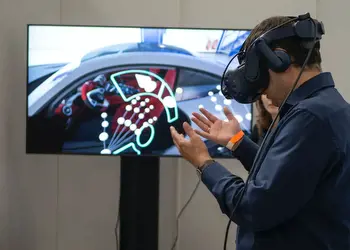Top Technology Trends Revolutionizing the Gaming Industry

The gaming industry is growing. There are many exciting innovations and tech trends in the industry. The following are the top tech innovations revolutionizing the gaming world.
Cloud gaming is among the latest developments in the gaming market. It allows users to enjoy different games without installing the game software or executing frequent updates. Microsoft and Google are among those companies that are investing in cloud gaming.
Esports is among the biggest gaming segments with expected revenue growth of a billion in 2022. Market experts predict the global esports market will be worth over $3.5 billion by 2025. By 2020, there will have been 272 million casual live viewers and 223 million enthusiasts. There will also be over 295 million enthusiast and 351 million viewers by 2023.
Blockchain technology is taking the world by storm. It powers hundreds of bitcoin casinos in 2022. In-game purchases are easier with the use of the technology. It also provides secure environments for gaming brands and game developers.
Intel is offering developers its RealSense 3D Camera that scans 78 different points to read player emotions from a person's face. Tencent is already using face recognition to limit the number of time youths spend playing video games in China.
Virtual reality has transformed the gaming industry. The market for virtual reality is estimated to be worth $11.56 billion in 2019. It is expected to grow at a 30.2% CAGR from 2020 to 2027.
Artificial intelligence is a booming new frontier influencing how games are developed and played. Pathfinding involves programming that controls the movements of an AI-based NPC. Finite state machines allow artificial intelligence to change behaviors based on specific conditions. The goal of artificial Intelligence in gaming is to deliver lifelike characters with lifestike qualities even when the game is set in a fantasy world.
Big data is becoming disruptive in the gaming industry. The data collected from players daily helps game developers develop immersive features.
Big data from video games can be used to improve the customer experience. Electronic Arts hosts about 50 billion gameplay minutes from 2.5 billion game sessions monthly. The rise of real-time monitoring of player data coincides with game streaming and a growing number of video game that require the internet to load their features.
In-game voice messages and chats are saved and analyzed for complaints against the video game through sentiment analysis. Glitches during a game got reported by the players and logged into the log files.
The future of monetization and engagement in the video game market looks bright. The gaming experiences will be more participatory, immersive and streamlined.





































